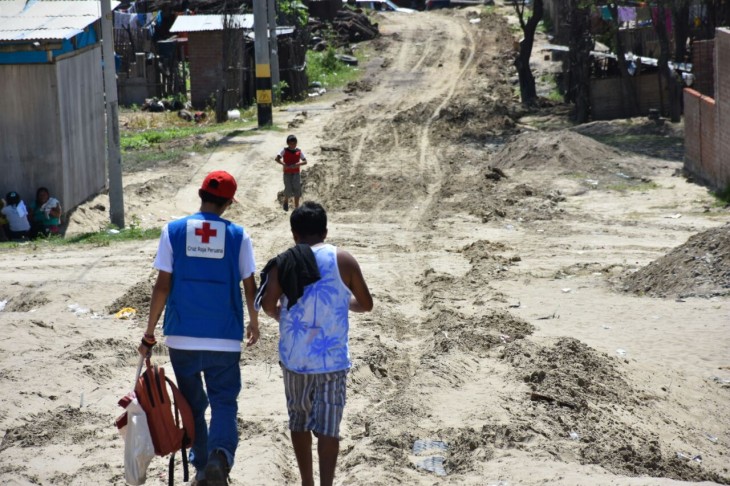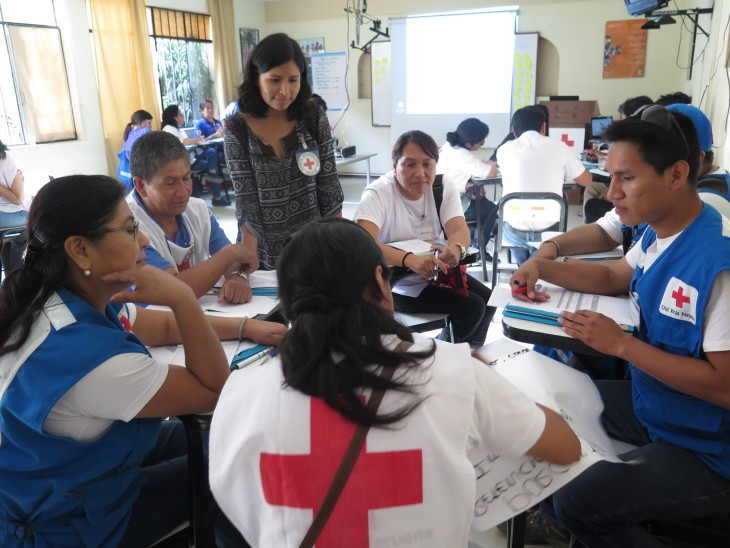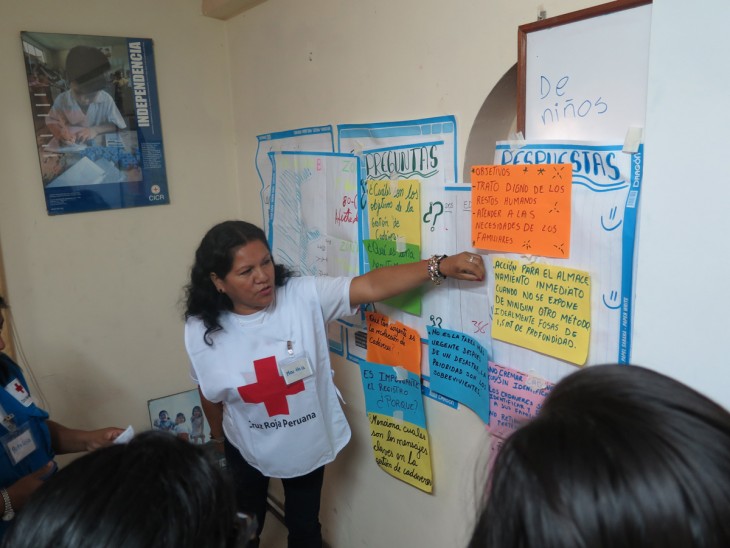Peru: Red Cross volunteers help families reconnect

A series of devastating floods and mudslides in Peru, caused by coastal weather phenomenon El Niño, forced tens of thousands from their homes in the first few months of 2017. Many people lost contact with their loved ones as they fled to safety. They had no idea what had happened to them and no way of finding out.

A Peruvian Red Cross volunteer tells a teenager that his relatives have been found and that they are safe and well. ©Fernando Gandarillas /CRE
"The mudslides were so strong, they were destroying everything in their path," says Braulio, one of the hundreds in the Piura coastal region affected by this natural disaster. "The only option really was to flee – and that's exactly what my family did. But I decided to stay behind to protect the few belongings we still had. I couldn't sleep for days on end, fearing for my family's safety. I had no way of finding out how they were or where they had got to."
Volunteers from the Peruvian Red Cross were sent out to the affected area to help those in need. Hundreds of people were desperate for news of their family members. Through the organization's tracing service, the volunteers helped people make telephone calls, charge mobile phones in places without electricity, and search for missing relatives in emergency shelters.

Preparation is key to responding effectively to a crisis. CC BY-NC-ND / ICRC /L. Sessena
Proper training is essential for volunteers involved in this kind of work, which is why the ICRC strives to build local capacity. We recently supported the Peruvian Red Cross in running a "train the trainer" workshop focused on tracing. The idea was for participants to receive training and then pass on their skills and knowledge to other volunteers at their respective branches of the Red Cross.
Volunteers from 18 different branches took part in the workshop. They were taught how to record the details of separated family members and how to track and support people affected by a crisis. They were also given training in basic emotional support and self-care.

A volunteer explains how to gather the information required and how best to work with people in need. CC BY-NC-ND / ICRC / N. Párraga
The ICRC works closely with National Red Cross and Red Crescent Societies in 190 countries across the world. Together, we help reunite families, prevent violence against health-care facilities and personnel and make sure that volunteers are trained to carry out their humanitarian work safely.
